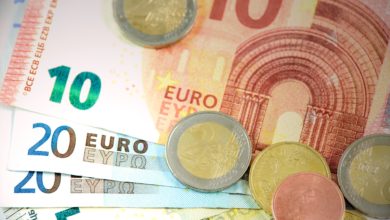Glyphosate or nuclear: What to do beyond scaring
Op-ed published on November 27, 2017, on EURACTIV.com.
For a number of years now, the use of the glyphosate molecule as a herbicide has been controversial to the point that today, the member states of the European Union (EU) cannot reach an agreement about it.
Under a licensing protocol in the EU, its authorisation had to be renewed in June 2016. Due to the lack of a qualified majority when the vote took place, the Commission decided to extend its authorisation by 18 months. During the vote on November 9, there was still no majority. A new vote is scheduled for 27 November. If it fails, the authorisation may expire on 15 December.
In France, a glyphosate ban for personal usage is planned from 1 January 2019 and the government may decide to ban it for all uses. However, this is not enough for our country, which wants to extend the ban across all of the EU.
To do this, our leaders say they are only willing to accept an extension for the next three years, which they say would be sufficient to phase out usage of this product. The Minister for Ecological Transition, Nicolas Hulot, said he was “proud” that France had “held firm” during the vote on 9 November.
But should we hold firm? Like nuclear, is it possible and above all reasonable to remove glyphosate in such a short period of time?
Recently, former Environment Minister Brice Lalonde praised the more realistic programme of his successor in relation to nuclear energy. In essence, Nicolas Hulot announced at the beginning of November that the objective of reducing the share of nuclear energy to 50% of electricity production would be postponed.
Hulot, the activist, could have chosen to resign in order to remain in line with his beliefs. He chose however to remain a Minister and to endure the criticism of the many commentators who accused him of backtracking and of capitulating.
This was not necessarily an easy choice because we are all subject to the powerful influence of cognitive biases whereby the more that one has invested in an idea, the more difficult it is to give it up. Undoubtedly, taking on the role of Minister forced Nicolas Hulot to take into account broader considerations.
Considerations like the absence of substitutes in the short term, the continued innovation and advancements in nuclear safety, and the impossibility of finding the perfect energy source.
It seems sensible to me that he adopts this same principle of realism when it comes to glyphosate. Because the questions that arise for glyphosate are the same as those that arise for nuclear, or for any other complex technology:
What advantages does the product in question provide and at what price? Can we do without it? Are there substitutes? Do they offer superior comparative advantages?
The use of glyphosate removes weeds without ploughing. This has important environmental benefits as it maintains soil quality, moisture and carbon content. It has the beneficial effect of increasing earthworms and insects that contribute to drainage efficiency and biodiversity.
All this without reducing yields, thus avoiding increasing land under cultivation. Organic farming, for its part, cannot do without ploughing. This is rarely mentioned in debates over the environmental sustainability of different forms of agriculture.
Today, glyphosate is a scary product because in 2015, a study by the International Agency for Research on Cancer (IARC), which is a part of the World Health Organization (WHO), identified it as a probable carcinogenic risk.
It has also categorised alcohol and processed meats as carcinogens. Will France’s wines and charcuterie be next on the list of products to ban?
Cécile Philippe is Director General of the Institut Économique Molinari.





